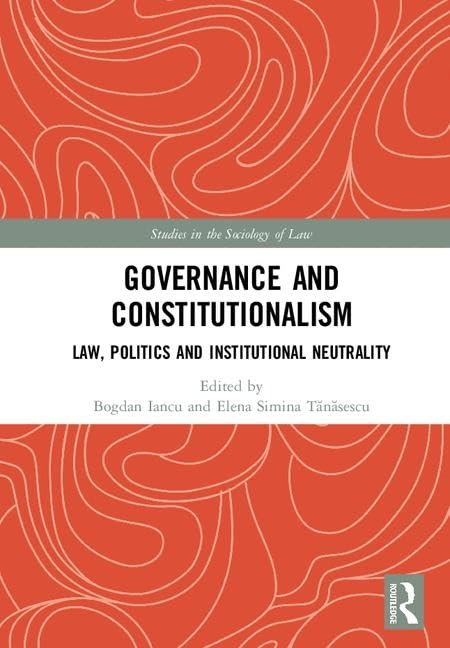Governance and Constitutionalism: Law, Politics and Institutional Neutrality (Studies in the Sociology of Law)
Governance and Constitutionalism: Law, Politics and Institutional Neutrality (Studies in the Sociology of Law) is backordered and will ship as soon as it is back in stock.
Couldn't load pickup availability
Genuine Products Guarantee
Genuine Products Guarantee
We guarantee 100% genuine products, and if proven otherwise, we will compensate you with 10 times the product's cost.
Delivery and Shipping
Delivery and Shipping
Products are generally ready for dispatch within 1 day and typically reach you in 3 to 5 days.
Book Details
-
Publisher: Routledge
-
Author: Bogdan Iancu
-
Language: English
-
Edition: 1
-
ISBN: 9781138633674
-
Pages: 206
-
Binding: Hardcover
-
Format: Import
About the Book
Neutral Bodies: Constitutionalism and the Rise of Independent Agencies by Bogdan Iancu critically examines the emergence of neutral administrative bodies such as commissions, agencies, councils, and independent authorities, and their challenge to the traditional constitutional paradigm of the nation-state. These entities, which operate with a degree of autonomy from democratic control, exist outside the classical triad of governmental powers, posing questions about their legitimacy, accountability, and role within both national and supranational systems.
The book is divided into two parts. The first part offers a rigorous theoretical and historical exploration, using the lens of constitutionalism and constitutional law to address the implications of political neutrality. It critically examines how this neutrality disrupts traditional political structures and challenges normative categories, both within individual nation-states and at the supranational level, such as in the European Union.
The second part provides a series of empirical case studies that illustrate the practical applications of the theories discussed in Part I. These case studies cover a wide range of issues, including the balance between autonomy, legitimacy, and accountability in independent agencies; the role of expertise in justifying institutional independence; and the effects of internationalization and transnational polity-building, particularly within the European Union.
This book offers valuable insights for scholars of constitutional law, political science, and European studies, addressing key concerns about the evolving relationship between political institutions, state sovereignty, and the growing influence of neutral, independent agencies in contemporary governance.





